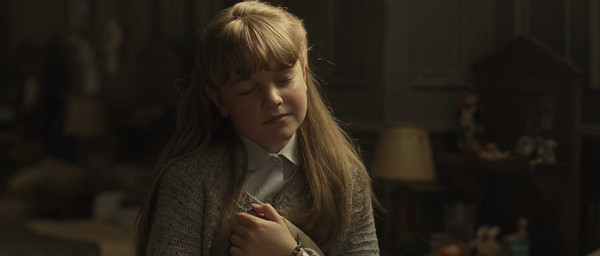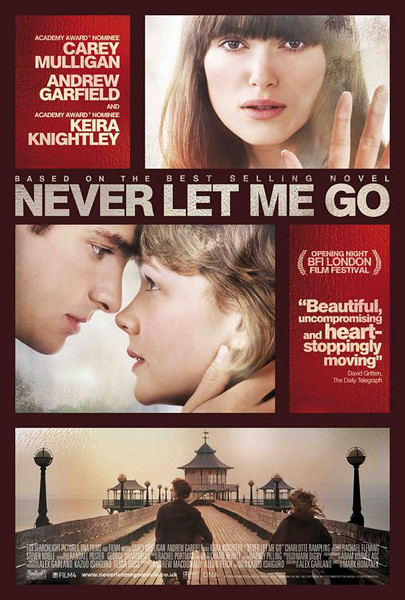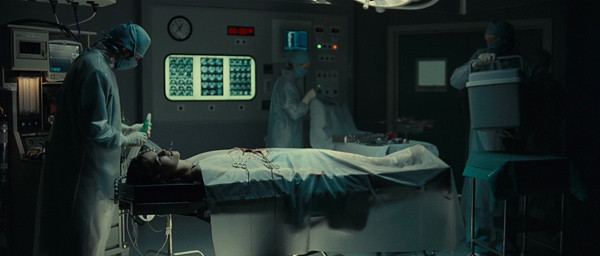"Darling,
Hold me
Hold me
Hold me
And never
Never
Never
Let me go."Never let Me Go (2010) by "Judy Bridgewater"
The title card at the very beginning of Never Let Me Go prefaced the film with the following statements,
"The breakthrough in science came in 1952.
Doctors could now cure the previously incurable.
By 1967, life expectancy passed 100 years."
Never Let Me Go is a gorgeous, very realistic "hard" science fiction feature adapted from Ishiguro Kazuo's 2005 novel of the same name and the speculative premise of the story is, in my opinion, medically feasible. While I am aware of the existence of Ishiguro-san's critically beloved book, I have never felt the impetus to actually read it until I saw this film - and I vow now to ask the Long-Suffering Girlfriend™ to lend me her copy the next time I see her. The story posed potent questions I thought I knew the answers to, but I am now far less certain of them.
Is it about love or the nature of the humanity? Is it a exploration into the ethics of science or an allegory for life? Rare is the author or filmmaker who neither panders nor preach, but simply presents. It is such a thematically rich film and I believe that if I proceed to review it further without discussing its spoilers, I will not be doing it due justice.
If you have not seen the film but have plans to do so, do not continue reading.
The Science Fiction.
The thing that kills us when we age is when our organs start to fail our bodies. Supposing we can replace these parts, we can theoretically extend our lives far beyond the natural span. Welcome to the world of Never Let Me Go, where history took a different turn (or missed a turn, depending on how you look at it). The details of the scientific breakthrough was left deliberately fuzzy, to allow the audience to share in the myopic perspective of the protagonists who were also purposely left in the dark.
We follow the lives of three children Kathy, Ruth and Tommy in what appeared to be a typical English boarding school in the countryside and almost immediately, one would pick up on just how deceptive that appearance can be. I won't dress it up: Hailsham is an institute for cloned children, a place where living, walking bags of harvestable human organs were raised and educated to fit into society so regular people wouldn't even know they walk amongst them, to protect the sensitivities of the public at large. These children will grow up to their mid-to-late twenties when they'll be called upon to start donating their vital organs, one by one, till they "complete" - a running euphemism for death in the story. Are they donating to their "original", the person they were cloned from? Or was the medical breakthrough hinted by the intertitle an immunological one where they found a way to either reliably suppress transplant rejection by the recipients or create clones which are universal organ donors? I wonder if the book has answers to these questions, but I don't wonder too much. They are peripheral to the narrative anyway.
The Ethics.
If you're anything like me, you'll spend the entirety of the film feeling an undercurrent of impotent anger at what you are seeing. Why are they so passive? Why the conspicuous absence of outrage from either the clones or from the people around them? Was the new science also neurological or in psychological conditioning which allowed them to produce obedient, altruistic donors who will never question their station in life? Where are the good guys, the bleeding hearts, the champions of human rights?
Miss Emily, their old headmistress, provides the answer,
"You have to understand, Hailsham was the last place to consider the ethics of donation. We used your art to show what you're capable of, to show that donor children are all but human - but we were providing an answer to a question no one was asking. Would you ask people to return to darkness, the days of lung cancer, breast cancer, motor neuron disease? They'll simply say no."
I realised, to my horror, that there is truth in her words. Consider our continuing insistence on consuming meat at the expense of the lives and comfort of animals which are demonstrably intelligent and are capable of experiencing basic emotions, even when we are now perfectly capable of subsisting on a vegetarian diet. Consider the blatant hypocrisy of PETA Director of Research & Rescue, MaryBeth Sweetland, who is purportedly against animal testing and the exploitation animals for the benefit of humankind - she said,
"I'm an insulin-dependent diabetic. Twice a day I take synthetically manufactured insulin that still contains some animal products -- and I have no qualms about it ... I'm not going to take the chance of killing myself by not taking insulin. I don't see myself as a hypocrite. I need my life to fight for the rights of animals."
Would Miss Sweetland, who believe that animals deserve the same rights as human beings, return to the days before insulin? She simply said no.

Isobel Meikle-Small as a young Kathy hugging a pillow and swaying to the titular song. It's one of my favourite scenes in the film.
I'm certain that the world of Never Let Me Go will never come to be - we are far more likely to receive disembodied human organs grown in laboratories in the future - but it is the purpose of speculative fiction to well, speculate. And the best of them ask questions that we didn't know we should ask.
The Story.
Perhaps there is a story in which a clone chose to escape his predicament (that story is called The Island and it sucked), but Never Let Me Go is not that story. It's about those who have accepted their societally assigned role and consider it their duty to "complete". It is what I would call a philosophical horror film. What frame of mind does a person have to be in to let other people remove his internal organs till they can no longer live? How does one live with the realisation that she is - for all intents and purposes - human livestock? What would you do, if you know from your childhood that you are never going live past your thirties?
There is an urban legend amongst the donors that if they can prove that they are truly in love, a couple can apply for a "deferral" which allows them to postpone their first donation for several years. We, the audience, know that that is not possible. Kathy pretended to believe in it. Tommy absolutely does - he thought that the gallery showcasing the artworks of the students of Hailsham serves this function, to allow the authorities to see into the souls of the donors and to confirm that their love is true. To that end, he brought the drawing he had made over the years to attempt the application. We, and I suspect Kathy as well, saw how this is going to end.
To quote Miss Emily,
"We didn't have the gallery in order to look into your souls. We have the gallery to see if you had souls at all."
Oh, the eternal human quest for more time to live. For it, humans will ignore the inconvenient humanity of human clones - some donors will hang on to the most improbable hopes of a deferral. Some of us will believe that there is life after death, and cling on to the scriptures and myths of civilisations long since passed. Tommy's realisation of the tragedy of his life was a terrible moment to behold and watching him, I feel as if I'm rediscovering my own mortality all over again. Andrew Garfield, who played Tommy, could not have captured that crash more perfectly - I especially liked how he silently refused to surrender the last pieces of himself to Madame.
What measure is a human being? If you are capable of love and art, if you experience anger, jealousy, regret and disappointment - is that enough? I am reminded of William Hazlitt's words,
"Man is the only animal that laughs and weeps; for he is the only animal that is struck with the difference between what things are and what they ought to be."
The film concluded far more bitterly than sweet, with a rather hollow and heavy-handed voice-over monologue by Kathy telling herself that she was "lucky to have had any time with him at all." To answer in kind, I would like to recall the speech of the Monologuing Minister in Synecdoche, New York,
"... even though the world goes on for eons and eons, you are only here for a fraction of a fraction of a second. Most of your time is spent being dead or not yet born. But while alive, you wait in vain, wasting years, for a phone call or a letter or a look from someone or something to make it all right. And it never comes or it seems to but it doesn't really."
Incomplete,
k0k s3n w4i




8 comments:
this movie sounds really interesting. hope i can check it out soon!
Heh, I read the screenplay back in 2007. It read sombre and slow but intriguing due to its subject matter. Later I found out who's directing and thought it'll turn out okay, especially with a cast like that. (I've been following Mr. Garfield's career since Lions For Lambs ...) Then the reviews came out and it just didn't go well with the critics so I haven't seen it yet.
Zzzyun: just remember it's more about philosophy than it is about medicine :)
McGarmott: well, there are some non-trivial pacing issues around the film's two time-skips (with the expected loss of dramatic momentum) and the story probably worked better in print - or at least that's what i felt. i personally think i'm more in love with the subject matter than the film itself. still, andrew garfield's performance in the 3rd act is worth watching the whole film for (and carey mulligan, 'nuff said).
The book was great, as was the movie. I loved Andrew Garfield in it. I don't mean to sideline the other actors in it, but he just struck me as amazing, and I became quite a mess when he began shouting for the second time. Talk about emotions. There was indeed anger and much to hate about characters like Miss Emily, and the cruelty of her words were so jarring. Yet what is there to debate? I dare not promise to be any different if given the chance to live a little longer.
i watched the movie last night, and i want to say, thanks for the recommendation! it was really thought provoking. and yes, keira knightly and carey mulligan have excellent acting! :)
and i hope that the future wont come to having to make clones to harvest organs though.
lovealynna: andrew garfield is shaping up to be one of my favourite actors in the biz, and he certainly gave a much more prominent performance compared to mulligan and knightley. his spider-man is going to be amazing. i wonder too if i'm willing to live a lot shorter than everyone else. it's undoubtedly the right thing to do. the implications of this film is really disturbing.
Zzzyun: that will never happen. the scientists are working on cloning individual organs, but they are hitting a few snags. for example, they can grow a heart but only if they have the fibrous cardiac skeleton as a starting frame.
u said: "I'm certain that the world of Never Let Me Go will never come to be"
And why on earth are you so certain, when we are doing it to other animals?
u said: "we are far more likely to receive disembodied human organs grown in laboratories in the future"
Are we? and how will those organs mature into something usable, efficient and worthy without growing in a concious body?
How much are we going to press the idea of "growing organs like vegetables" in a world that humans are smuggled and their organs are sold?
Arman Daneshjoo: Why am I so certain we will get lab-grown organs instead? Because unlike you, I am not ignorant and actually kept abreast of scientific discoveries. Scientists are working on achieving it and they are succeeding in increments.
To ease shortage of organs, grow them in a lab?
And last I checked, they had managed to grow working kidneys (organs with incredibly delicate inner structures) and transplanted them in mice - so now it is just a matter of scaling up.
Post a Comment